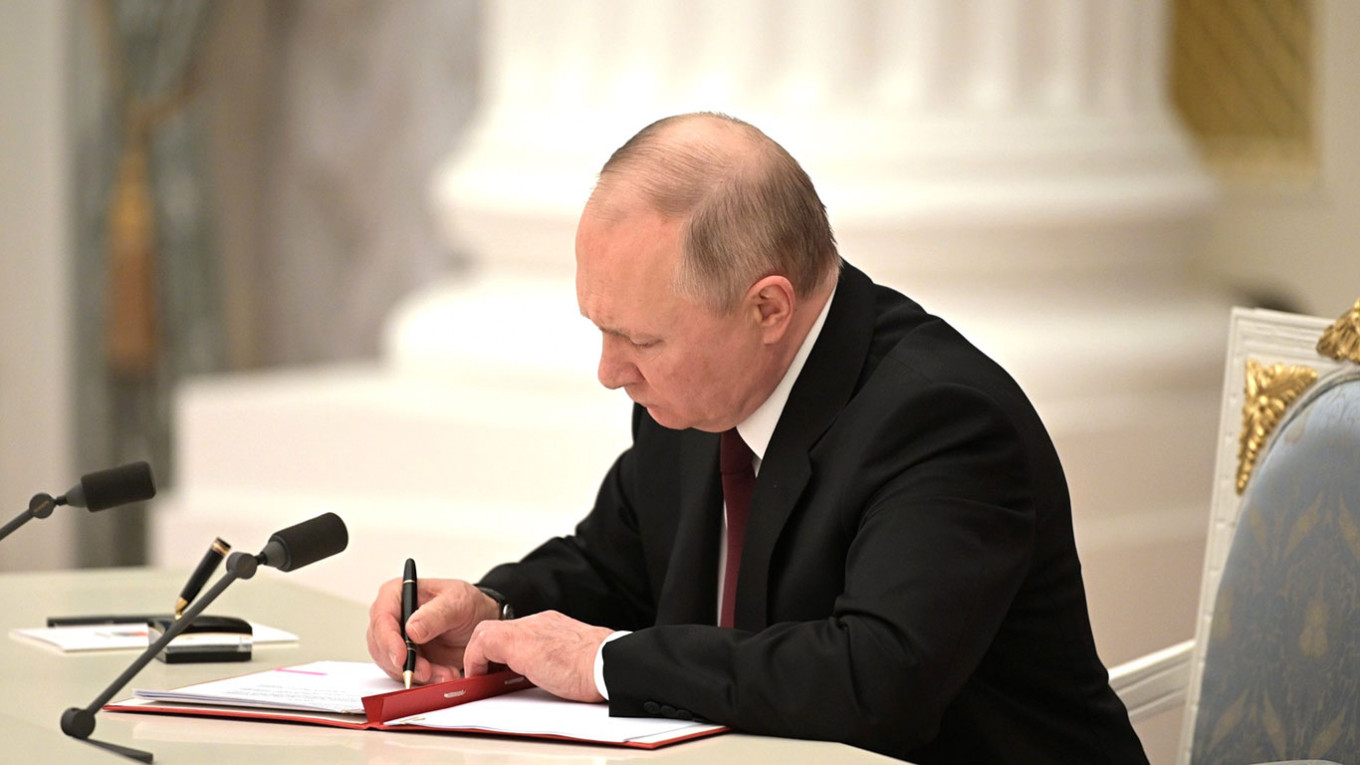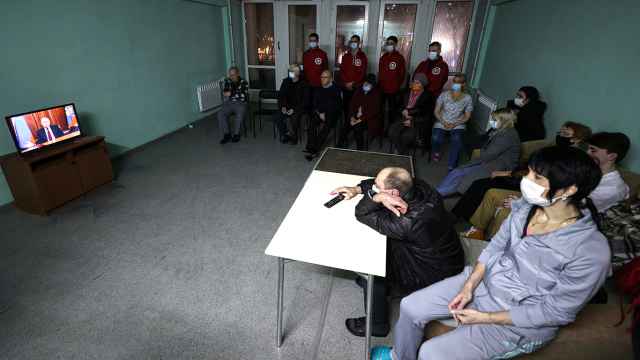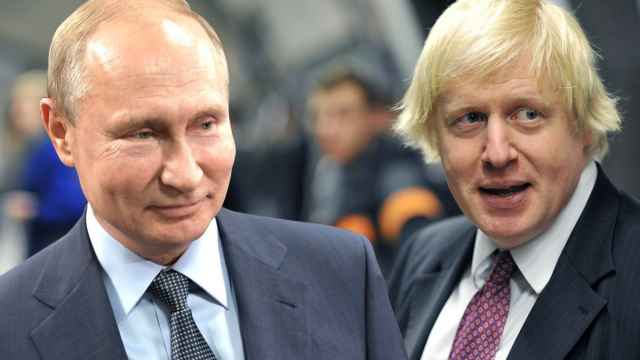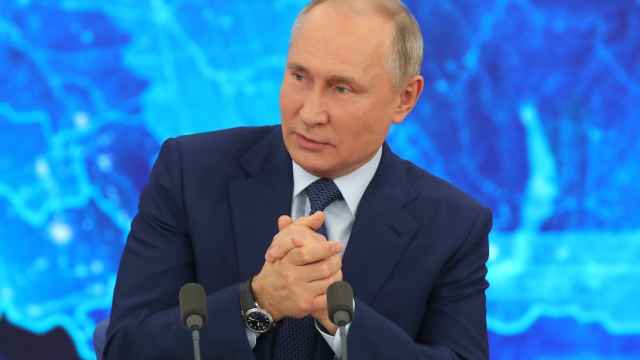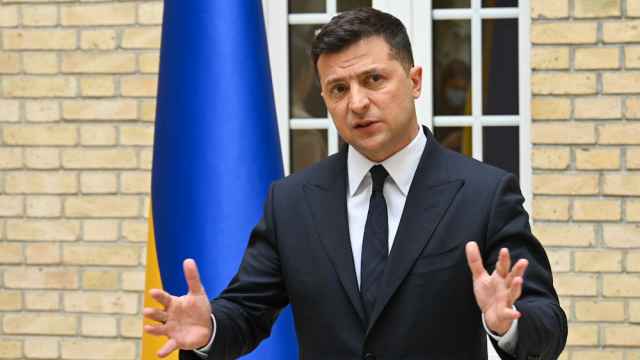Russia has officially recognized the independence of Ukraine’s breakaway territories, but questions remain over Moscow’s intentions. Given that Putin doesn’t like to be predictable or follow anyone else’s timetable, and that his actions are governed by the logic of military special operations, there is some confusion over what the recognition means.
Was the buildup of troops and threat of invasion of Ukraine a cover operation for Russia recognizing the self-proclaimed Donetsk and Luhansk people’s republics (DNR and LNR)? Or is recognition of the republics a cover operation for invading Ukraine and toppling its current regime?
There is another possibility: that all of this together is an ongoing cover operation for Russia’s main diplomatic goal in the region, the federalization of Ukraine and its alienation from the West, and its main global goal, ending the perception of Russia as the country that lost the Cold War.
Recognizing the independence of the Donbas republics was unexpected because it was seen as an overly simple and therefore unlikely outcome that doesn’t reflect the scale of the arsenal of tools at Russia’s disposal. Moscow hardly needed to assemble its army in order of battle on Ukraine’s borders, demand that the West formally annul the outcome of the Cold War, and launch nuclear-capable missiles during military exercises just to formally adjust the status quo on the ground. It’s a case of the mountain roaring — and bringing forth a mouse.
Still, precisely because the mountain roared, it was impossible to avoid losing face without changing the status quo. Invading Ukraine would have been too risky, and is unlikely to have been part of the plan at this stage. The Kremlin has seen the lessons of Afghanistan and Iraq: that an adversary’s army may be defeated, but that does not guarantee control of the country.
Invading would also have been too much of a gift for the West, at the very least because it would have directly confirmed the worst Western fears over Russia, the accuracy of Western media, and the quality of Western intelligence, all of which have been the subject of ridicule among senior Russian commentators in recent weeks.
Reluctant to confirm those Western intelligence reports, Putin has chosen the option that was least expected, and which had been least prepared for: the backup option. The worst outcome — an invasion of Ukraine — was far more anticipated. Judging by the bold statements of Western leaders and their frantic diplomatic activity, they truly believed an invasion was imminent, based on the military evidence and their own intelligence, and had focused their efforts on that scenario as the most dangerous outcome.
It looks like recognizing the republics was the planned preliminary outcome of the current crisis, which, it should be remembered, began with the publication by the Russian Foreign Ministry back in November of documents revealing that Germany and France were complicit in Ukraine’s failure to implement the Minsk agreements aimed at ending the conflict in eastern Ukraine. Now Russia’s plan has entered its final phase, with Moscow informing Paris and Berlin — not Washington and London — that it will formally recognize the DNR and LNR.
In some ways, the recognition is also a gift to the West. Russia has given the West an excuse to withdraw from negotiations with it on thorny security issues and to impose sanctions. It’s also far from the worst outcome for Ukraine and President Volodymyr Zelensky. Despite the humiliating loss of territory, the Minsk agreements were clearly such a burden for Kyiv that it will be relieved that it was Russia who buried the agreements in the end, rather than Ukraine. In any case, recognition of the republics, just like Russia’s annexation of Crimea previously, doesn’t stop Ukraine from being able to demand their return and to hope that history will provide them with the opportunity to do so.
The recognition is also a chance for Russia to climb down from the peak of escalation with a concrete result, because retreating empty-handed would have been a ruinous outcome for the Kremlin’s prestige, and for the country’s military and diplomatic apparatus. Russia had three options: pressing Kyiv to federalize through the implementation of the Minsk agreements, pushing the West to end NATO’s expansion, and recognizing the Donbas republics. Having failed to achieve the two main goals, Russia resorted to the third option.
Russia’s latest move could be seen as a reason for the West to end talks with it on its package of security demands. On the other hand, it demonstrates the seriousness of Russia’s intentions, and its readiness to move from words to deeds, even if it comes at a cost. For some Western politicians, this will eventually mean there is all the more reason to talk to Russia, not less. This, at least, is clearly what the Kremlin is counting on.
Recognizing the DNR and LNR could be precisely the “military-technical response” that Moscow threatened if the West refused its security demands. In a mirror response to NATO moving its military infrastructure close to Russia’s borders, Russia is moving its own toward Kyiv and NATO. The principle that a power seeking equality will behave like the powers with which it strives for equality is one of the key motivations and explanations of Russia’s actions.
Still, recognition of the DNR and LNR can only be considered a relatively acceptable outcome for Kyiv and the West and peaceful end to the escalation if it really does end there, and there’s no guarantee that it will. It might be opening a pressure valve, or it might be turning up the heat even further. It’s one thing if Russia moves back its troops from Ukraine’s borders, but for now it is moving them into territory that was previously recognized (and still is, by the rest of the world) as part of Ukraine.
Recognizing the republics without withdrawing troops does not mean an end to Russian pressure on the issues of Ukraine’s federalization or Western security guarantees. To get its point across, Moscow initially retained a degree of ambiguity as to whether it was recognizing the territory actually held by the separatists, or the territory outlined in both republics’ constitutions, which state that their borders align with those of the former Ukrainian regions of Donetsk and Luhansk, i.e., including land still controlled by Kyiv. Putin subsequently clarified the confusion — only to make it more complicated still. Russia recognizes the “constitutional,” i.e., virtual borders of both republics, and the territorial issues will have to be resolved during talks with Kyiv. Which of course are doomed to fail or even never to begin, opening up once more the option of “the talks have failed so we have to act.”
During the current crisis, Russia has demonstrated the weak points in the ties between Ukraine and the West. It got the United States, Europe, and even NATO to publicly refuse to fight for Ukraine, or even send troops there as a warning to Russia. It got the West to admit that even in the most aggressive scenario, its reaction would be economic and limited, and that even the “sanctions bill from hell” would have its limits, so that that the most serious measures—such as cutting Russia off from the SWIFT international payment system, halting certification of the new Nord Stream 2 gas pipeline, and banning the purchase of Russian oil and gas — would be up for discussion. In any case, most of Putin’s inner circle benefit from sanctions through import substitution contracts.
Finally, by evacuating its embassies, suspending flights, and urging its nationals to leave, the West showed that it had no confidence in Ukraine. The resulting long-term blow to business and investors will be more damaging to Ukraine than sanctions will be for Russia: even direct budget funding cannot compensate for loss of investment.
Moscow has shown once again, therefore, that turning against Russia does not automatically lead to national prosperity. Yet nor can Russia itself offer that, even to the Donbas, never mind to Ukraine as a whole. Russia may do well as an exporter of security to friendly regimes, but it’s far less successful as an exporter of economic success.
Now it will become an exporter of security to the Donbas, too. With recognition of the DNR and LNR and the arrival of Russian troops, life for the republics’ remaining residents will likely become more peaceful: the threshold for Ukrainian troops to use force against Russian soldiers will be higher than it was against the rebels — if, of course, the Kremlin doesn’t decide to advance further into Ukrainian territory.
Recognition will also have consequences for Russia at home. The topic of the Ukrainian threat to residents of the Donbas and their resulting suffering has been the subject of extensive media coverage for the last eight years, and even more so in recent weeks. It needed to be resolved before Putin’s current term ends in 2024, and again, Russia found a way to mirror the West: if the West saved Ukraine from Russian aggression, Russia has saved the Donbas from Ukrainian aggression.
Now there are various options for 2024 itself, from the unlikely event of a more pro-Russian government coming to power in Kyiv, to Donbas becoming part of Russia, or part of the Union State with Russia and Belarus.
Finally, and despite Western misapprehensions that the Russian president is trying to rebuild the Soviet Union, an important part of his speech was actually devoted to criticism of the Soviet Union. What his speech actually showed, once again, is that Putin is in fact rebuilding Russia and the international order according to his own ideas of historical justice and the changing balance of power.
This article was first published by the Carnegie Moscow Center.


